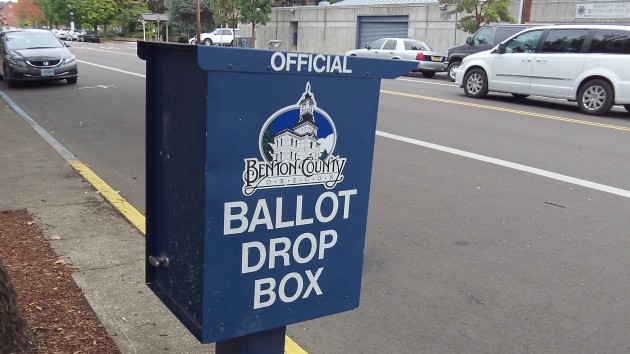There ought to be a law against ballot initiatives involving scientific fields — such a genetic engineering — which only one in a thousand voters knows anything about. Oregon Measure 92 is one such proposal, and on Nov. 4 it will have been decided based on emotion alone. That can’t be a good thing.
Wise voters turn down anything they have questions about or don’t completely understand. That applies to Measure 92. The measure would require food sold in Oregon to be labeled if it contains more than a tiny amount of material produced through genetic engineering such as gene splicing. Judging by the ads, some farmers are for it but farm organizations are against it.
Opponents say it will add to the price of food, while backers say it won’t. But it stands to reason that if commercial food sold in Oregon requires even one extra step — such as researching the genetics of ingredients and then applying a label — it has to cost at least a little more than if this work was not required.
The measure is full of unsupported “findings” that may or may not be true, such as: “The genetic engineering of plants and animals often causes unintended consequences.” Really? How often? Such airy assertions have no place in a state law.
Here I am, typing while also having a cheese sandwhich. According to the label, the cheese was made of pasteurized milk, cheese culture, salt and enzymes. “Contains milk,” it says. That’s nice, but does anybody care whether the milk came from genetically enhanced cows?
The bread label is longer, starting with unbleached enriched flour (which is made up of wheat flour, barley malt, niacin and some other stuff), and continuing with water, cracked wheat, sugar, honey, yeast and several things with long names. Then the warning: “Contains wheat, soy.”
Measure 92 claims that “93 percent of all soy grown in the U.S. was engineered to be herbicide resistant,” which its authors think is terrible. So in effect they already have their labeling, at least where this kind of bread is concerned. But as for me, I don’t care about the nature of the soy in my bread. I’m pretty sure that if the soy was making people sick or stunted in some way, it would have become apparent by now. I do care about not cluttering the law books with windy editorials against food technology.
The authors say one purpose of the bill is to allow people to make “informed decisions for personal, religious, moral, cultural, or ethical reasons.” When making food laws for the state, can we please leave religion to one side? (hh)


Whoa big fella. If I had my way there would be more in that labeling message than is now. What country, what state, what parent company? That sort of thing. We as consumers probably don’t realize just how much “foreign” material may be in consumer food products. And please don’t blow smoke at me that such labeling would add millions to the cost. Just how much can a few words cost to be added to a label? The info is on the bill of lading!!
I’m not so sure that tinkering with nature really gives us tremendous benefits all the time. I have read up on the pro & cons of measure 92 & will vote yes! I try to stay informed about ballot measures & not fall for all the hype. Thanks for stirring up the discussion. JE
Perhaps the folks supporting this measure can lobby manufacturers to voluntarily label. This way, they can pay extra for the peace of mind and the rest of us can take it or leave it.
D Simpson,
You can cram genetically modified garbage down your throat if you want to, but I’d at least like to know when I am doing it. How are you going to “take it or leave it” if you don’t know what you are taking and leaving? If you want to be ignorant of the substances you consume, fine….but don’t stand in the way of information that we have a right to know.
No labels are fine for the “sheeple” of the world that consume processed (junk) food as their primary diet. What if food labels didn’t have to list things like sodium content? Salt can literally KILL some people with congestive heart failure. Perhaps that was considered “too expensive” at the time those regulations were passed. Thankfully logic prevailed over (overstated) monetary interests.
GMO’s are not EVERYWHERE yet….alternative food sources are available if one wants to avoid such products. Glyphosate resistant crops and the food they yield have been blamed for many of America’s illnesses that are now believed to be a result of food and food processing, and yes, GMO’s. It is also being found that some people are more sensitive to these GMO’s than others. Why should they have to gamble with their health?.
We simply don’t know yet what the effects are of GMO’s. It has taken DECADES to learn of the harmful effects of many foods we assumed (for decades) were good for us and now we know differently. Carcinogens, allergens, preservatives, etc.
Labeling costs little and we have a right to know what is in our food. The food processing giants of the world have been taking the food value out of food for years and we deserve to know what they are selling us. Accountability anyone?